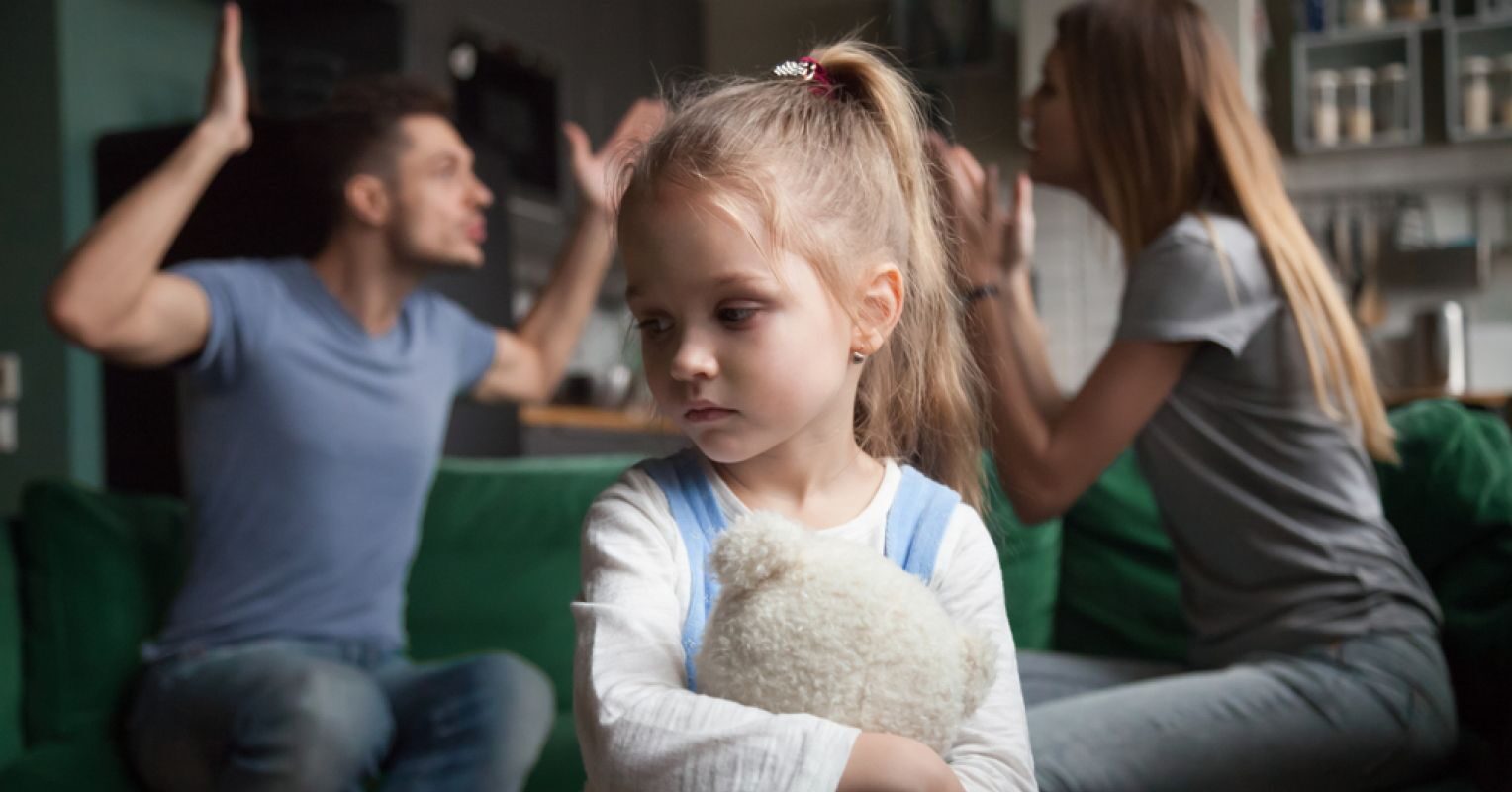Marital infidelity is a harsh reality that affects many couples, with statistics indicating a significant prevalence. According to studies conducted by various institutions, a considerable percentage of individuals admit to having engaged in extramarital affairs. While the immediate consequences for spouses are evident, the **Impact of Infidelity On Children In a Marriage** is a critical aspect often overlooked within the family dynamic.
In this article, we delve into the multifaceted ways in which infidelity can shape the lives of children, exploring emotional trauma, trust issues, behavioral problems, and long-term effects. Additionally, we’ll discuss ways to help children navigate these challenges in the aftermath of marital infidelity.
The Immediate Impact Of Infidelity on Children

Emotional Trauma
Marital infidelity creates a turbulent emotional landscape for children. They find themselves caught in the crossfire of their parents’ relationship struggles, experiencing profound emotional trauma. Feelings of betrayal, abandonment, and confusion become unwelcome companions as the once-stable family dynamic fractures.
Children, who may be unable to fully grasp the complexities of adult relationships, often internalize the conflict, feeling responsible for their parents’ marital problems. The emotional distress experienced by children witnessing a parent’s infidelity can be likened to a storm, leaving lasting scars that shape their worldview and future relationships.
Trust Issues Generally and with Parents Specifically
The breach of trust resulting from a parent’s infidelity extends beyond the immediate family unit. Children, inherently trusting beings, grapple with a newfound skepticism about the reliability of others. The foundational trust that forms the bedrock of healthy relationships becomes compromised, impacting their ability to form connections with peers, teachers, and future romantic partners.
Moreover, the trust issues expand specifically to the unfaithful parent. A breakdown in the parent-child relationship ensues, making it challenging for children to confide in or seek support from the parent who has breached their trust. This erosion of trust can have enduring consequences on the child’s emotional well-being and the overall family dynamic.
Behavioral Problems and Academic Struggles
The emotional turmoil resulting from parental infidelity often manifests in children’s behavior. They may act out, become withdrawn, or engage in risky behaviors as a coping mechanism for the stress and emotional upheaval surrounding them. These behavioral problems serve as outward expressions of the internal turmoil the children are experiencing.
Academic struggles often accompany these behavioral challenges. The ability to concentrate on schoolwork diminishes, leading to poor academic performance. The motivation to excel may wane, with children feeling a disconnect between their personal lives and the demands of academic achievement.
Relationship Problems and Self-Esteem Issues
As children internalize the instability witnessed in their parents’ relationship, they encounter difficulties forming healthy connections in their own adult lives. The blueprint for stable, enduring relationships becomes tainted by the specter of infidelity, leaving children grappling with a sense of unworthiness and an inability to trust in love and commitment.
Self-esteem takes a considerable hit as children blame themselves for their parents’ relationship problems. Feelings of inadequacy and a distorted sense of self-worth may persist into adulthood, shaping the way they perceive themselves and their ability to cultivate meaningful relationships.
Increased Anxiety and Health Problems
The emotional upheaval caused by marital infidelity amplifies children’s anxiety levels. Worries about the stability of the family unit and personal safety pervade their thoughts, leading to increased stress. The familiar and comforting aspects of their world become uncertain, fostering a heightened state of anxiety that can have profound implications for their mental and emotional well-being.
The stress induced by a parent’s infidelity can also manifest in physical health problems. Headaches, stomachaches, and insomnia become physical manifestations of the emotional turmoil the children are enduring. A weakened immune system further exposes them to potential long-term health issues.
The Long-Term Impact on Children

Likelihood of Infidelity in Adulthood
Research findings suggest a link between parental infidelity and a child’s propensity for infidelity in their own adult relationships. The Journal of Family Issues presents sobering statistics indicating that children whose parents were unfaithful are twice as likely to engage in infidelity themselves. While acknowledging the role of childhood trauma in shaping behavior, this correlation underscores the enduring impact of parental infidelity.
Impact on Romantic Relationships and Trust
Clinical psychologist Ana Nogales delves into the lasting effects of infidelity on children’s perspectives on romantic relationships. Growing up in an environment marred by infidelity leaves indelible imprints on children’s outlook on love, trust, and commitment.
The statistics reveal a stark reality — 75% of children harbor lingering feelings of betrayal toward the cheating parent, 80% report that infidelity shapes their overall perspective on romance, and 70% describe its lasting impact on their general trust in others.
How to Help Children Heal After Infidelity
Open Communication and Honesty
Navigating the delicate task of communicating about infidelity with children requires openness and honesty. While the level of detail shared should be age-appropriate, the importance of honesty cannot be overstated. Younger children may grasp a simplified explanation that acknowledges a mistake, while older children may require a more nuanced understanding. Regardless, the reassurance that the child is not to blame and that the parents are actively working to resolve their issues is paramount.
Therapy and Emotional Support
Recognizing signs of distress in children necessitates proactive measures, including seeking professional help. Child therapy provides a safe and structured environment for children to express their emotions, understand them, and begin the healing process. Engaging in family counseling concurrently can foster open communication, providing tools for rebuilding trust and addressing the complexities of familial relationships.
Emotional Stability and Reinforcement of Love
Amid the tumult of infidelity, parents must prioritize reinforcing emotional stability for their children. Offering unconditional love, attention, and resources becomes a crucial countermeasure against the negative impacts of the crisis. By demonstrating a commitment to emotional support, parents can help their children navigate the complexities of the aftermath with a sense of security and love.
FAQs
How does cheating in marriage affect children?
Cheating in marriage can deeply affect children, leading to emotional trauma, trust issues, behavioral problems, academic struggles, and long-term challenges in forming healthy relationships.
What are the effects of infidelity in marriage?
The effects of infidelity in marriage include emotional trauma for children, trust issues, behavioral problems, academic struggles, relationship challenges, self-esteem issues, increased anxiety, and potential long-term impact on their own future relationships.
What are the traumas of children with infidelity?
Children with infidelity in the family may experience emotional trauma, trust issues, behavioral challenges, academic struggles, relationship difficulties, self-esteem issues, increased anxiety, and potential long-term effects on their own romantic relationships.
Conclusion
The impact of infidelity on children within a marriage is profound and far-reaching. From immediate emotional trauma to potential long-term effects on relationships and trust, children navigate a complex emotional landscape when faced with their parents’ infidelity. Recognizing the signs and taking proactive steps to address these challenges, such as open communication, therapy, and emotional support, can significantly contribute to a child’s healing process.
While marital infidelity remains a challenging reality for many couples, acknowledging and addressing its impact on children is crucial for fostering healthier family dynamics and individual well-being.





